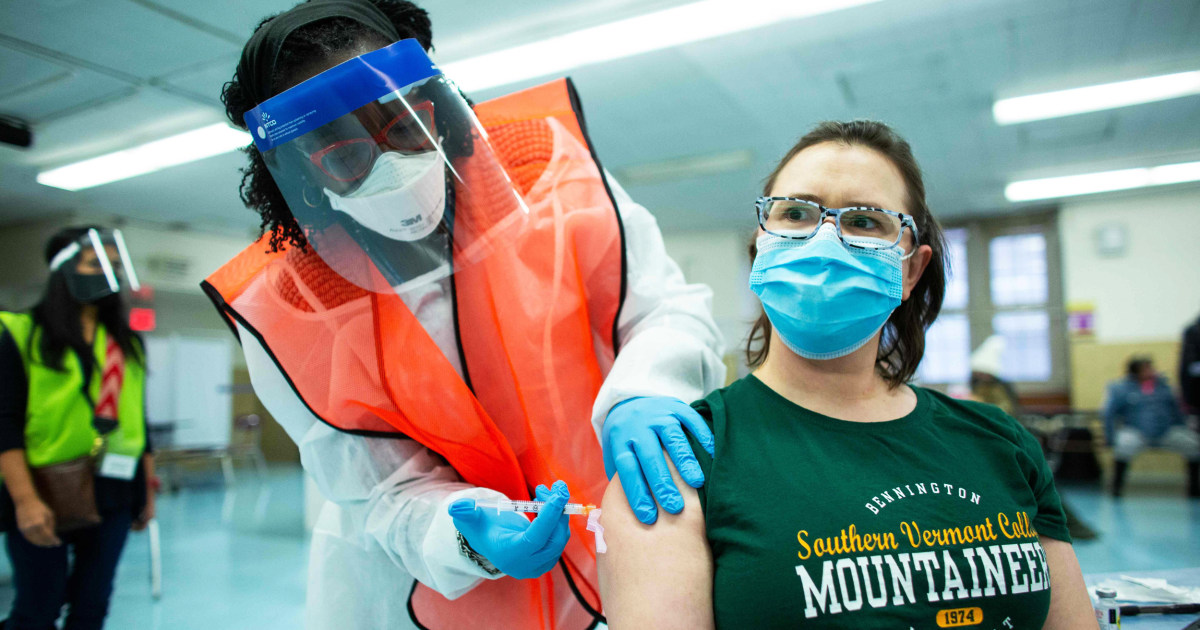The slow release of Covid-19 vaccines – including late deliveries, states receiving fewer doses than expected and difficulty scheduling appointments – has caused some consternation that people may not be able to receive their second dose within the prescribed 21 or 28 days.
While potentially worrying, public health experts across the country say there is no cause for concern.
Full coverage of the coronavirus outbreak
The Centers for Disease Control and Prevention, national pharmacy chains, infectious disease specialists and doctors at the forefront of treating patients say there is some leeway for the second dose – while emphasizing that it is still essential be fully vaccinated as soon as possible.
“The second dose should be administered as close as possible to the recommended interval,” said the CDC in an update to its website on Thursday. “However, if it is not feasible to adhere to the recommended interval, the second dose of the Pfizer-BioNTech and Moderna Covid-19 vaccines can be scheduled for administration within 6 weeks (42 days) after the first dose.”
Rina Shah, vice president of Walgreens’ pharmaceutical operations and services group, which plans to administer doses in its stores across the country, said “patients can receive the second dose as long as they follow the immunization window,” which means that the second dose is provided not earlier than the designated time period.
“We encourage patients to schedule a second dose appointment as close to the appropriate date as possible, but a little later it is OK,” said Shah.
This goes against official guidance from the Food and Drug Administration and Pfizer-BioNTech and Moderna, the drug makers behind the two vaccines currently available in the U.S., which says that two doses, given at specific intervals, are necessary for maximum protection. For Pfizer, that interval is 21 days; for Moderna, 28 days.
These timeframes stem from how the vaccines were administered in clinical trials, which means that the only data available analyzes how well the vaccines worked when administered 21 days apart for Pfizer and 28 days apart for Moderna.
But the body’s immune response does not expire after a defined interval.
“Your immune system is really smart,” said Dr. Buddy Creech, director of the Vanderbilt Vaccine Research Program at Vanderbilt University Medical Center in Nashville, Tennessee. “Don’t forget what you saw the first time,” he said, referring to the first dose of the vaccine.
Creech, who oversaw Moderna’s clinical trials, said vaccines should work as expected, even if the second dose is delayed by a month or more than recommended.
“Don’t panic. Even if it takes four, six, eight weeks before receiving the second dose, it’s okay from an immune system point of view,” he said.
The second dose of Pfizer and Moderna vaccines works as a reminder for the immune system.
Download the NBC News app to get the latest news about coronavirus
“Like any defense mechanism, if the immune system sees something once, it can be prepared the second time,” said Dr. Bruce Y. Lee, professor of health policy and management at City University of New York. “If you are exposed to something a second time, it tells you – hey, you have to take this seriously.”
This could happen even if the second dose was given within a year, said Dr. Diane Griffin, an infectious disease specialist at the Johns Hopkins University School of Medicine, although there is no data showing that giving the second dose much later would lead to 95% effectiveness observed in clinical trials.
“The main reason for reinforcement is to increase immunity to a level high enough that you can be sure you are protected,” said Griffin.
Still, Griffin emphasized the importance of being fully vaccinated, sooner or later.
“People may think they are protected because they received a dose,” she said. Although the first dose offers protection, “it is necessary to emphasize that a second dose is necessary” for total protection.
Lee agreed, adding that the better an individual is protected, the better it will be for others around him as well. “If other people are protected, the virus will have less opportunity to spread,” he said.
CORRECTION (January 21, 2021, 4:51 pm Eastern time): An earlier version of this article incorrectly stated the recommended number of days between each Covid-19 vaccine. The interval for Pfizer is 21 days (not 28) and the interval for Moderna is 28 days (not 21).
Follow NBC HEALTH on Twitter & Facebook.

